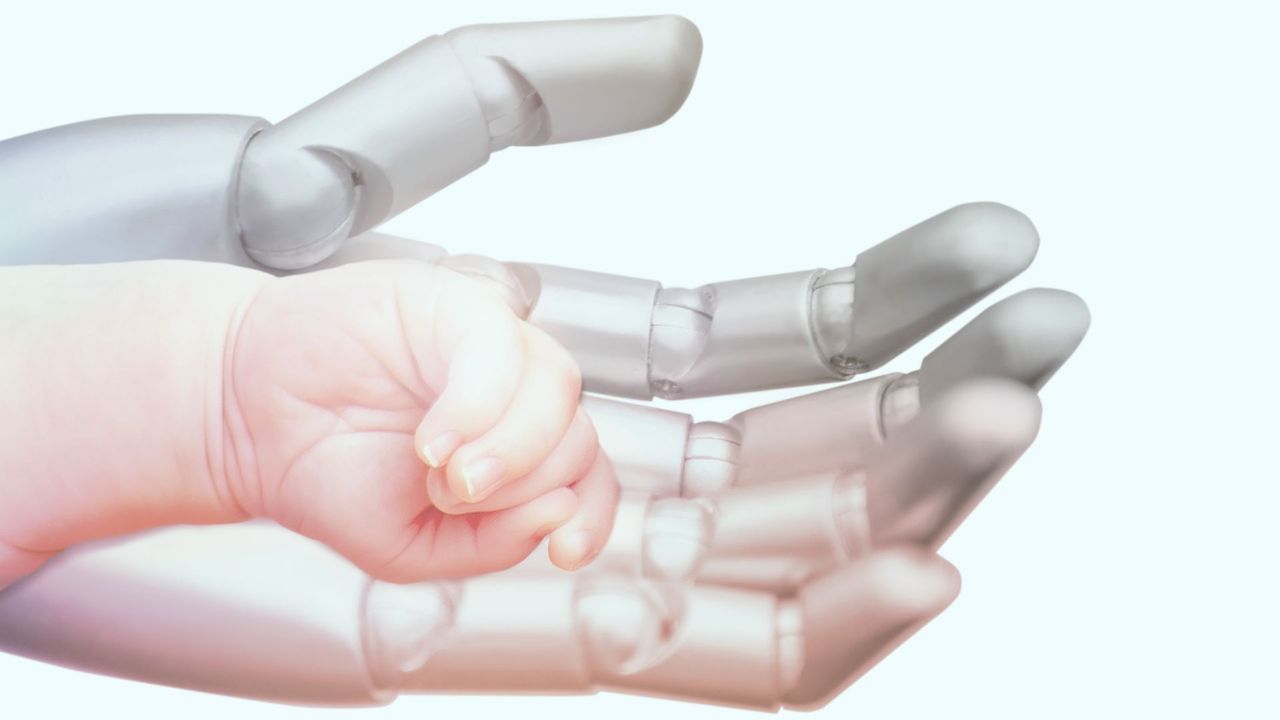Science
Viral ‘Pregnancy Robot’ Story Sparks Debate on Feasibility

A sensational story circulated through various media outlets this week, claiming that a CEO of a technology company in China was developing a “pregnancy robot.” This fictional narrative suggested that a prototype could be ready by next year, designed to sustain a human pregnancy from conception to birth, lasting approximately 10 months. Despite its viral nature, the story has provoked discussions about the potential for such technology and the ethical implications it would entail.
While the concept of a robot capable of carrying a pregnancy may sound like science fiction, it raises important questions about the intersection of technology and human reproduction. Current advancements in robotics and artificial intelligence have made significant strides, leading some to consider whether a machine could one day replicate this complex biological process.
Exploring Technological Possibilities
The idea of a “pregnancy robot” may seem far-fetched, but it has ignited curiosity regarding the future of reproductive technology. Proponents argue that such innovations could provide solutions for individuals facing infertility or health complications during pregnancy. Advancements in related fields, such as artificial womb technology, have already begun to blur the lines between science fiction and reality.
Critics of the concept express concern over the ethical ramifications. The idea of outsourcing pregnancy to a machine raises questions about parental rights, the emotional aspects of childbirth, and the implications for maternal health. The potential for robots to replace traditional birthing processes may conflict with deeply held cultural and emotional values surrounding childbirth.
Public Reaction and Ethical Considerations
In light of the viral story, polls have been conducted to gauge public opinion on the idea of using a pregnancy robot. Many respondents expressed mixed feelings, with some intrigued by the possibilities while others remained skeptical about the ethical implications.
Participants in the poll were asked whether they would consider using such technology, and those who selected “maybe” were invited to elaborate on what factors would influence their decision. Responses varied widely, indicating a spectrum of beliefs about the role of technology in human reproduction.
The conversation surrounding this fictional pregnancy robot highlights broader themes regarding the integration of technology into personal and intimate aspects of life. As innovations continue to challenge traditional notions of parenthood and pregnancy, society must navigate the accompanying ethical dilemmas.
While the story may have originated from a fictional premise, its impact is tangible. It serves as a reminder of the rapid advancements in technology and the complex conversations that will inevitably follow. As science progresses, the potential for robots to assist in human reproduction may no longer be confined to the realm of imagination.
-

 Lifestyle3 months ago
Lifestyle3 months agoLibraries Challenge Rising E-Book Costs Amid Growing Demand
-

 Sports3 months ago
Sports3 months agoTyreek Hill Responds to Tua Tagovailoa’s Comments on Team Dynamics
-

 Sports3 months ago
Sports3 months agoLiverpool Secures Agreement to Sign Young Striker Will Wright
-

 Lifestyle3 months ago
Lifestyle3 months agoSave Your Split Tomatoes: Expert Tips for Gardeners
-

 Lifestyle3 months ago
Lifestyle3 months agoPrincess Beatrice’s Daughter Athena Joins Siblings at London Parade
-

 World3 months ago
World3 months agoWinter Storms Lash New South Wales with Snow, Flood Risks
-

 Science3 months ago
Science3 months agoTrump Administration Moves to Repeal Key Climate Regulation
-

 Science2 months ago
Science2 months agoSan Francisco Hosts Unique Contest to Identify “Performative Males”
-

 Business3 months ago
Business3 months agoSoFi Technologies Shares Slip 2% Following Insider Stock Sale
-

 Science3 months ago
Science3 months agoNew Tool Reveals Link Between Horse Coat Condition and Parasites
-

 Sports3 months ago
Sports3 months agoElon Musk Sculpture Travels From Utah to Yosemite National Park
-

 Science3 months ago
Science3 months agoNew Study Confirms Humans Transported Stonehenge Bluestones









